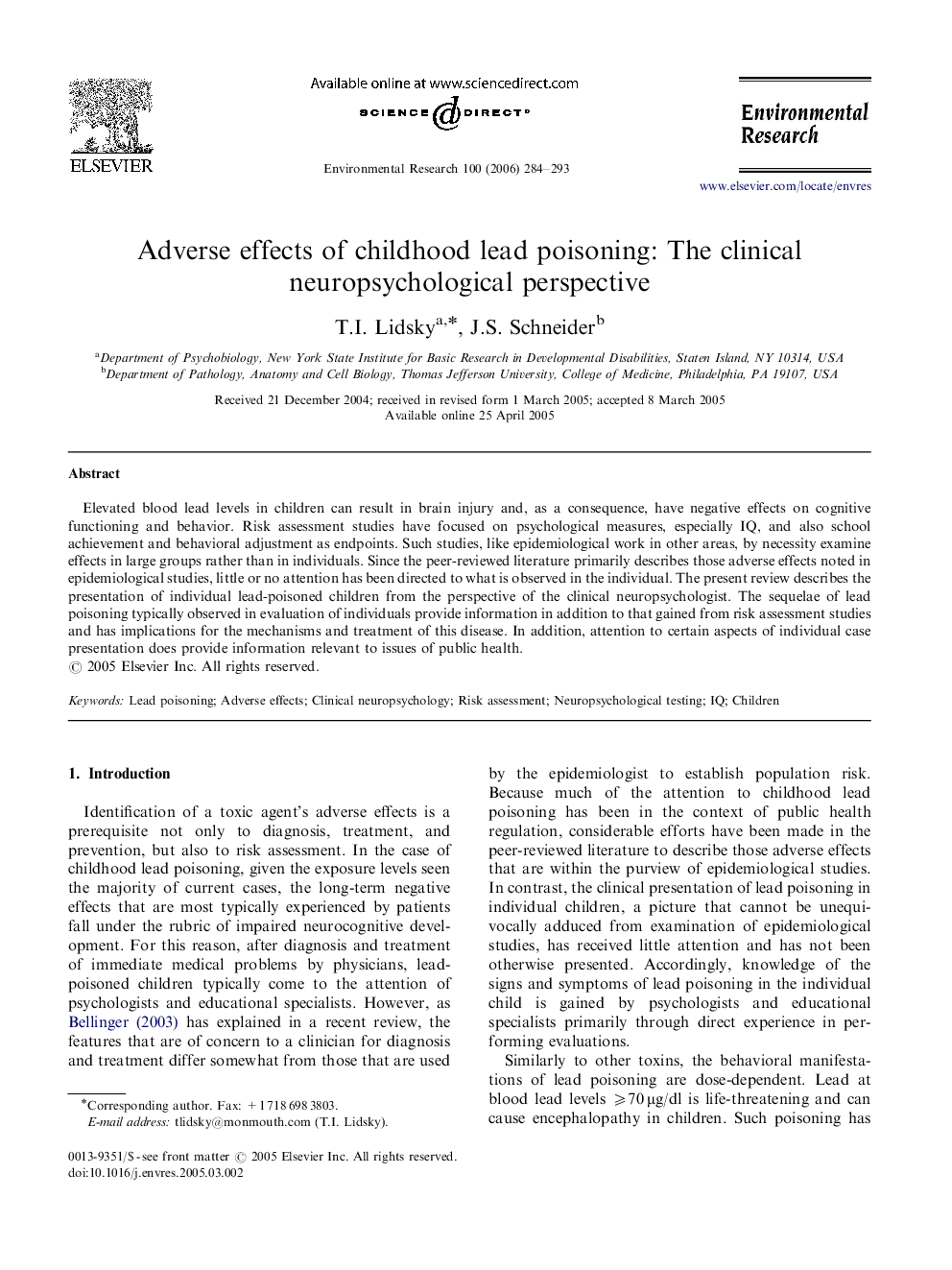| Article ID | Journal | Published Year | Pages | File Type |
|---|---|---|---|---|
| 4471052 | Environmental Research | 2006 | 10 Pages |
Elevated blood lead levels in children can result in brain injury and, as a consequence, have negative effects on cognitive functioning and behavior. Risk assessment studies have focused on psychological measures, especially IQ, and also school achievement and behavioral adjustment as endpoints. Such studies, like epidemiological work in other areas, by necessity examine effects in large groups rather than in individuals. Since the peer-reviewed literature primarily describes those adverse effects noted in epidemiological studies, little or no attention has been directed to what is observed in the individual. The present review describes the presentation of individual lead-poisoned children from the perspective of the clinical neuropsychologist. The sequelae of lead poisoning typically observed in evaluation of individuals provide information in addition to that gained from risk assessment studies and has implications for the mechanisms and treatment of this disease. In addition, attention to certain aspects of individual case presentation does provide information relevant to issues of public health.
